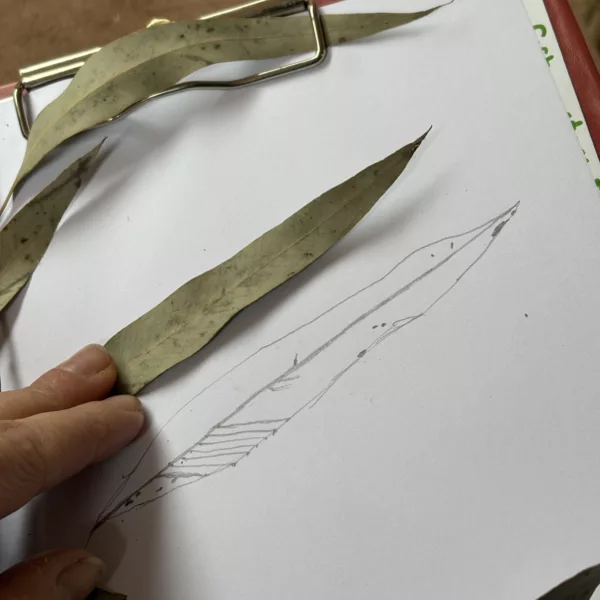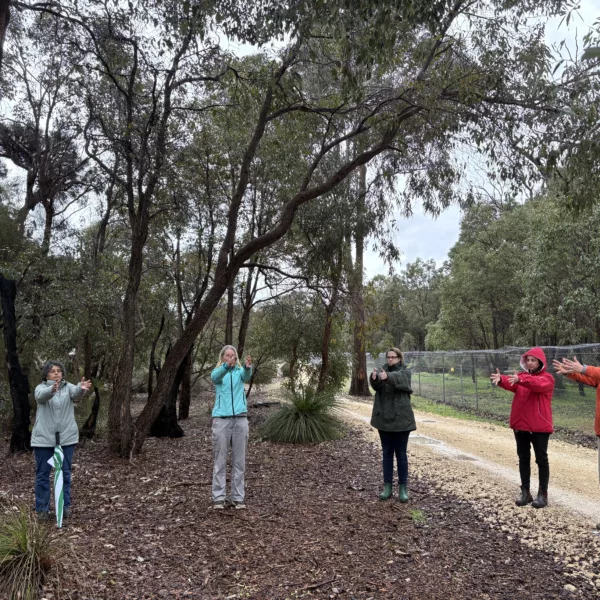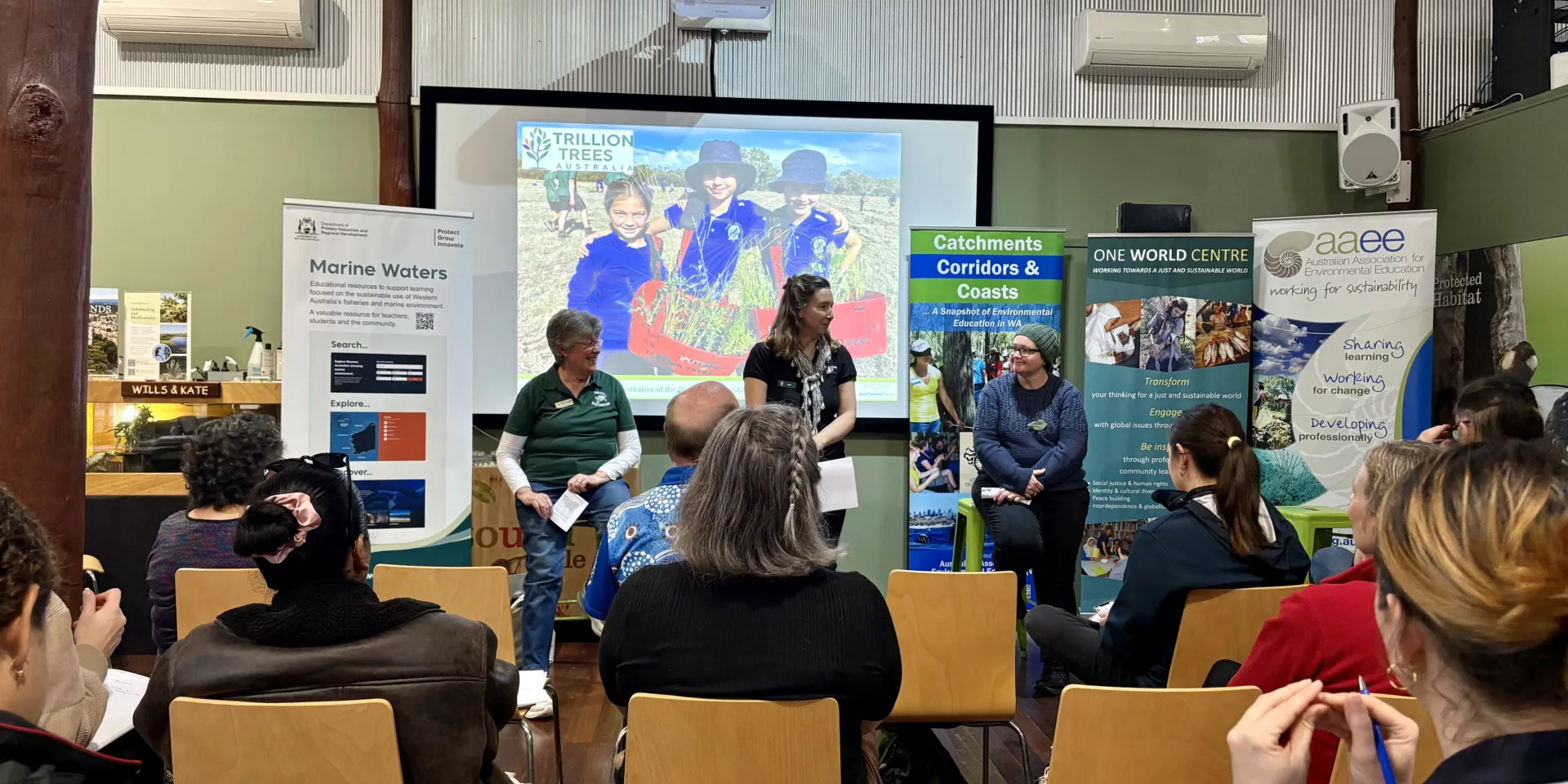The 2025 Catchment, Corridors and Coasts event was held at Whiteman Park Interpretative Centre on Tuesday 19 August. Hosted by the Australian Association for Environmental Education (WA), this one day professional development symposium brings together environmental educators, teachers, government representatives and community groups to explore environmental issues.
Over more than 30 years the AAEE has worked with government and non-government organisations in the interests of quality education and environmental change. The WA chapter is unique, involving a broad cross-section of environmental educators from diverse areas such as schools, government agencies, industry, universities, technical and further education centres, zoos, museums, parks and reserves, environmental education centres and community and conservation groups.
The Catchments, Corridors & Coasts (CCC) program encourages participants and practitioners to engage in systems thinking, recognising that every aspect of life occurs within a catchment. Sometimes in the upper catchment, sometimes in the corridor, sometimes at the coast and sometimes in all three.
During this event, Trillion Trees was one of 12 organisations that presented a five minute spotlight to highlight their work. Discussion was actively encouraged after each set of spotlights and many connections were made. During the afternoon session, delegates chose between educational walks within Whiteman Park, or a session focused on nature connection facilitated by Educated by Nature. The nature connection session introduced the concept of nature journaling and other mindful practices which could be easily applied to groups of children.
Environmental education happens everywhere - in schools, homes and workplaces. There are three categories of environmental education - about the environment, in the environment and for the environment. Systems thinking (the opposite of silo thinking) is essential. Environmental education is crucial - people care about what they know about and protect what they care about. Before we ask children to save the world we have to ask children to love the world! Nature disconnection is a growing problem in our society - some children are afraid to sit on grass! Environmental education is essential for building relationships with nature.
Trillion Trees has a long term commitment to environmental education which is embedded alongside community engagement in all areas of our work. Our flagship schools program, SPROUT!, has delivered environmental education to over 70,000 children since the 1980s. Lifelong learning is also delivered to adults through a series of Trillion Trees workshops and community events.

Learning about nature journaling

Understanding the concept of using "owl eyes" to explore nature

